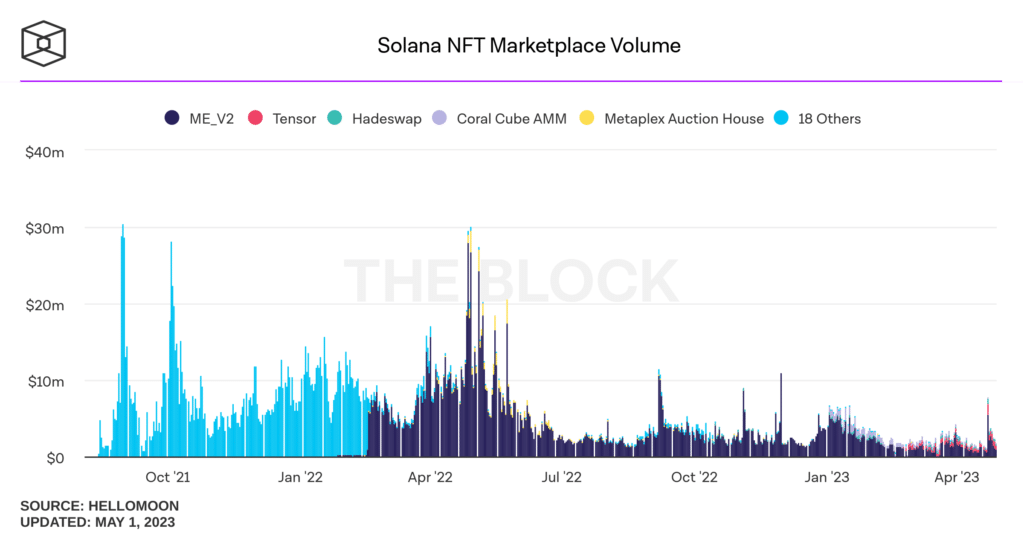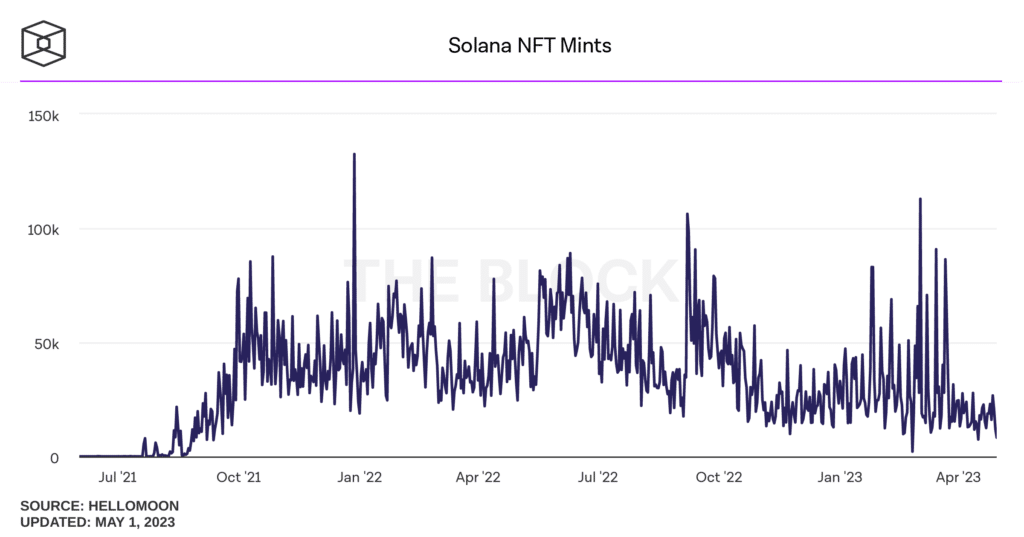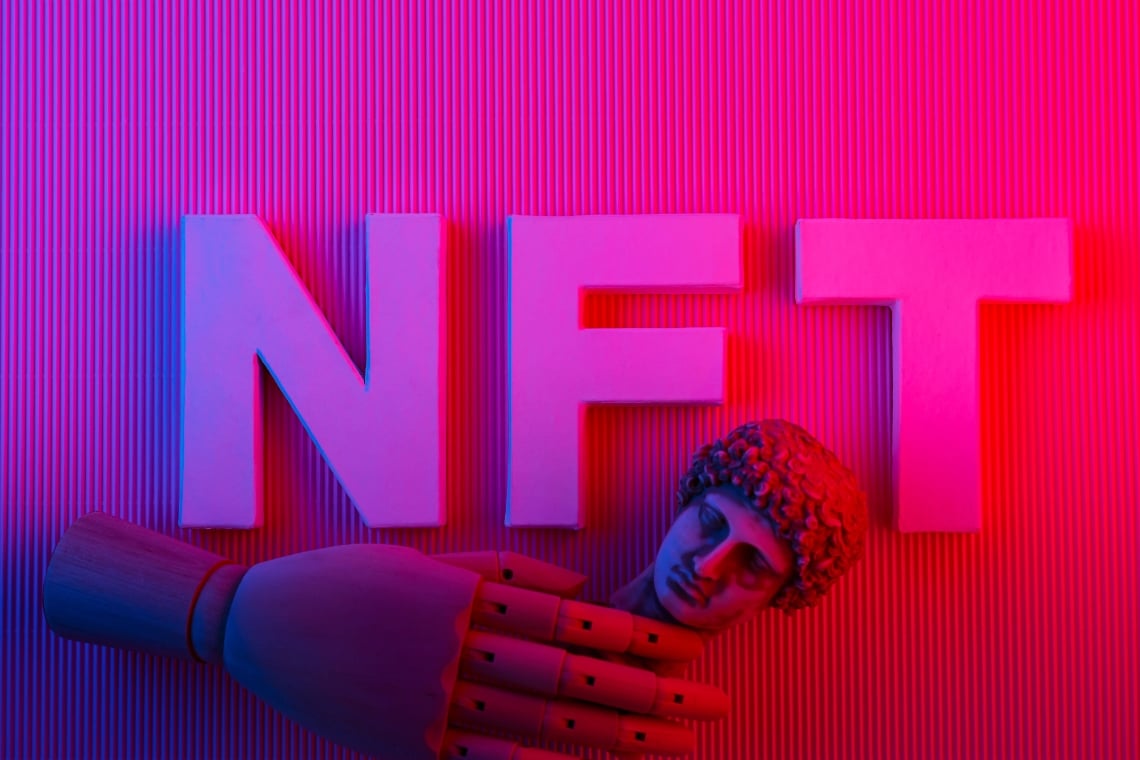Exchange.art, the NFT marketplace developed on the Solana blockchain, today announced the launch of its “Personal Gallery Space”, a space dedicated to creators, curators and galleries to improve the state of the digital art industry.
With this new feature, the marketplace will become even more inclusive and open to those involved in the crypto art market.
Let us take a closer look at what this gallery consists of.
Summary
NFT Marketplace on Solana announces its new feature: the “Personal Gallery Space
Exchange.art, a decentralised NFT marketplace for buying and selling, announced today that it is launching a public gallery space for artists and curators in an attempt to take the digital art industry to a higher level and attract the largest number of art institutions to the Web3 digital art world.
With the growing interest in this sector, Exchange.art is implementing solutions and updates to establish itself as one of the leading NFT marketplaces within the Solana ecosystem.
The “Personal Gallery Space” serves as a central place where artists and exhibitors can showcase their art, focusing exclusively on the artistic aspect and less on the economic and commercial factor.
Very often, marketplaces where non-fungible tokens are exchanged are perceived exclusively as places of commodification, where the art component is less and less considered in favour of the money factor, in all its deviations from the crypto world.
The space can be seen as an entire collection or as part of a collection, in a softer approach to facilitate the transition of digital and traditional art creators within the models of blockchain technology.
This functionality represents the first of many steps that will be taken by the NFT marketplace to offer more artistic solutions to the gallery and curator audience, who will have the opportunity to elevate their artistic creations in the web3 space, recreating the “gallery” atmosphere.
Commenting on the news, Alex Fleseriu, CEO of Exchange.art, said:
“We are excited to announce the launch of our Gallery feature, which is the first of many steps to bridge the gap between the traditional art world and Web3. Our goal is to shift the focus from commerce to art, creating a digital space that feels just like a physical art gallery. With these updates, we aim to create an inclusive platform that welcomes the traditional art community into Web3 and facilitates their seamless transition into the digital age”.
The Exchange.art marketplace numbers
Exchange.art is an NFT marketplace developed on the Solana chain that has not yet fully established itself in the crypto art community.
Although the team has carried out many initiatives to attract more attention, such as the introduction of the ‘personal gallery space’ feature, the numbers of the decentralised marketplace are far from the desired success.
While the art sector on blockchain is growing by leaps and bounds, with sales increasing from $605,000 in 2019 to the current $2.9 billion, according to a report by UBS and Art Basel, Exchange.Art plays a marginal role in the scene, both in terms of the number of transactions and the volumes recorded on the platform.
The hunger and glamour of this type of business is in fact calculated by financial data and metrics, given and considering that the revenue in this case comes from exchange fees and royalties rather than the subjective beauty of one collection over another.
The platform has made a few dozen on-chain transactions in the last 30 days, confirming the low interest of traders and artists in trading NFT on this marketplace.
Magic Eden, on the other hand, the true flagship marketplace in the Solana ecosystem, which handles almost all the NFT volume on the chain, has recorded around 30,000 transactions in the last 24 hours alone.
In fact, this marketplace acts as the main hub for digital art sold on Solana, sweeping aside all other competitors such as Exchange.art, Metaplex, Solanart, Tensor, Solsea and DigitalEyez.
Hoping to see a less monopolistic market with more competition, it is hoped that Exchange.art will be able to attract new players to its infrastructure, increasing the number of internal transactions and on-chain sales.

The NFT Marketplace on Solana
Despite losing one of its biggest backers during the collapse of the FTX exchange last year, the Solana blockchain remains a central point for the non-fungible token marketplace, with sales of around $85 million in April 2023.
Analysing historical NFT market data, Solana ranks third as the web3 infrastructure with the highest sales volume, behind only the Ronin chain and Ethereum.
In total, approximately $3.96 billion has been traded on Solana in just over three years since its inception.
In the last seven days, the most successful collections on the blockchain, founded by Anatoly Yakovenko and managed by the Swiss-based Solana Foundation, were those of Mad Lads, Famous Fox Federation and Chads, which together generated sales of $2.6 million.
Looking at all existing blockchains, Mad Lads was the fourth best-selling collection in the last 30 days, rising from a floor price of 6.9 SOL to a current price of 63.8 SOL.
However, if we look at historical collections, we find names such as DeGods, Solana Monkey Business, Degenerate Ape Academy and Okay Bears, with prices ranging from 50 to 170 SOL.
It is therefore clear that Solana plays an important role in this sector, both in terms of the volume it generates and the scalability with which users can move around the different marketplaces.
Despite this, it is also clear that the hype and public attention has diminished considerably compared to the NFT explosion phase in late 2021 and early 2022.
This can be seen in the development of the number of non-fungible tokens minted on the blockchain, which is currently in a downward trend, with values at their lowest since September 2021.
It was only at the end of February and the beginning of March that we saw an upturn in these figures, which was immediately followed by a downturn in April.





